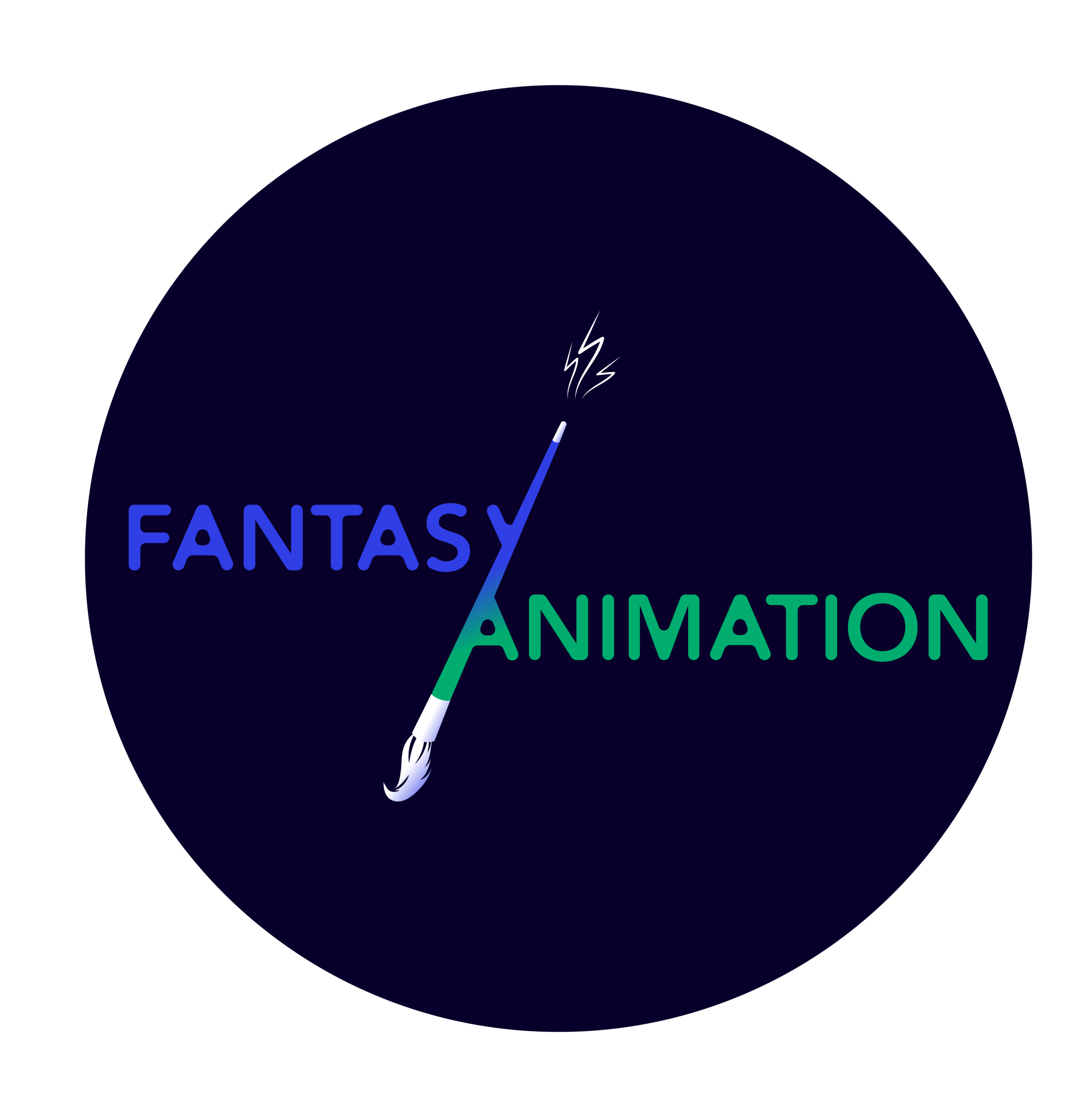For Fantasy/Animation’s very first look at California-born animator, writer, and independent filmmaker Don Hertzfeldt, Chris and Alex are joined by Elizabeth Cox, founder of independent animation studio Should We Studio, to discuss Hertzfeldt’s influential World of Tomorrow (2015-2020) featuring the tribulations of protagonist Emily. In her role as the Senior Editorial Producer at TED-Ed, Elizabeth has written and edited the scripts for over 200 educational animated videos including “How to Avoid a Climate Disaster," a seven-part adaptation of the book by Bill Gates (supported by Gates Ventures). She also served as a science advisor on “My Love Affair With Marriage,” an animated feature film that premiered at Tribeca Festival 2021. Elizabeth recently wrote a short piece for the blog on her animated series Ada, with each episode exploring how a different technology or policy could shape the future.
Read MoreChris and Alex are delighted to welcome Dr. Jared Bahir Browsh (Assistant Teaching Professor, University of Colorado Boulder) to the podcast to discuss William Hanna and Joseph Barbera’s landmark animated sitcom The Flintstones (1960-1966), the first cartoon series to occupy a prime time slot on U.S. television.
Read MoreTuck in for some Valentine’s Day spaghetti and meatballs as Chris and Alex chew on Walt Disney’s celebrated cel-animated love story Lady and the Tramp (Clyde Geronimi, Wilfred Jackson & Hamilton Luske, 1955), a musical romance released in the mid-1950s and based on the 1945 Cosmopolitan magazine story “Happy Dan, The Cynical Dog” by Ward Greene. The studio’s first CinemaScope release and a film that coincided with the opening of Disneyland in California, Lady and Tramp is rife with context and offers a number of threads that speak to the landscape of Disney animation in the 1950s.
Read More2022 kicks off with the provocative politics and violent tragedies of See You Yesterday (2019), the Netflix science-fiction feature about the time-travel adventures of two young scientific prodigies in Brooklyn. The special guest for this discussion on the stakes of temporality, the futility of breaking out of a cycle, and the immediacy of racialised trauma is Dr Ebony Elizabeth Thomas, Associate Professor in the Division of Literacy, Culture, and International Education (University of Pennsylvania Graduate School of Education).
Read MoreThe result of our latest social media poll charting listeners’ favourite Don Bluth animated film yields the focus of Episode 86, where Chris and Alex uncover The Secret of NIMH (Don Bluth, 1982), the filmmaker’s very first animated feature and one that would set the template for his tone and style to follow.
Read MoreEpisode 85 discusses the recent HBO horror television series Lovecraft Country (2020), developed by Misha Green as a continuation of Matt Ruff’s 2016 novel, and places the story of 1950s racial segregation in the United States on a collision course with the science-fiction world of H.P. Lovecraft. Joining Chris and Alex for this latest episode is Dr Bambi Haggins, Associate Professor in the Department of Film and Media Studies at UC Irvine whose work explores race, class, gender and sexuality in American comedy across media and television history. She is also the author of Laughing Mad: The Black Comic Persona in Post-Soul America (2007), while her current book project, Still Laughing, Still Black examines how Black comedy, culture and reception in the new millennium reflect, refract and reveal the necessity and the power of Black comic discourse and survival laughter since 2008.
Read MoreThe spectacular animated world of U.S. filmmaker Don Bluth is the focus of Episode 82, with Chris and Alex journeying to the Great Valley for this discussion of The Land Before Time (Don Bluth, 1988). Joining them is Dr Mark Witton, vertebrate palaeontologist and palaeoartist (based at the University of Portsmouth), who is best known for his scientific research and illustrations around the habits and behaviors of pterosaurs, as well as his consultancy work with museums and on the BBC television series Walking with Dinosaurs (1999) and Planet Dinosaur (2011).
Read MoreChris and Alex take to the basketball court for a sports-themed instalment of the podcast by looking at Space Jam (Joe Pytka, 1996), the part-animated, part-Michael Jordan sports comedy that has lots to say about the spectacle of stylistic hybridity, animation’s longstanding relationship to sport, and nostalgia via its many callbacks to Golden Age Hollywood cartooning all through the lens of NBA basketball. Joining them for Episode 70 is Professor Paul Wells, who is Director of the Animation Academy at Loughborough University, as well as being an internationally established scholar, screenwriter and director, working across and within both academia and industry contexts.
Read MoreEpisode 66 is a real toe-tapper, as Chris and Alex dance to the beat of George Miller’s 2006 computer-animated musical feature Happy Feet (George Miller, 2006), produced by U.S. studio Village Roadshow Pictures in collaboration with Australian animation and VFX studio Animal Logic. Joining them to discuss this digital tale of all-singing all-dancing penguins is Dr Hannah Hamad, Senior Lecturer in Media and Communication at Cardiff University’s School of Journalism, Media and Culture, having previously been Lecturer in Film Studies at King’s College London, and Senior Lecturer in Media Studies at the University of East Anglia.
Read MoreTake a trip on a magic theme park ride with a Ranger, Barbarian, Magician, Thief, Cavalier and Acrobat as Chris and Alex turn once again to the small screen, this time to discuss Dungeons & Dragons (Kevin Paul Coates, Dennis Marks & Takashi, 1983-1985). Premiering on American television with CBS and animated by Japanese company Toei Animation, Dungeons & Dragons is a high fantasy cel-animated series that follows the tribulations of six young children as they strive to escape from a mythical realm.
Read MoreJoin Chris and Alex for a discussion of the animated high fantasy epic Wizards (Ralph Bakshi, 1977), recorded in front of a live audience at the Cinema Museum in Kennington, London in January 2020. Conceived by animator Ralph Bakshi, Wizards is a counter-cultural marvel of the 1970s, one that blends a series of innovative animation styles with a story designed to stick two fingers up at the man with its heady mixture of psychedelia, allegory and fantasy.
Read MoreWith its last episode recently broadcast on Netflix, the web television series BoJack Horseman (Raphael Bob-Waksberg, 2014-2020) provides a timely and topical subject for Episode 40. Join Chris and Alex as they take a canter through the programme’s status as ‘adult animation’ (and what this term might mean as a label); the dark truth of its themes of narcissism, depression and self-destructive behaviour; how its shifting chronology and narrative ellipses places BoJack Horseman within contemporary Hollywood ‘puzzle film’ storytelling traditions; its complex anthropomorphic register and cartoonal forms of representation; and how BoJack Horseman’s ensemble cast navigates modes of cross-species sexuality at the same time as it collectively disavows any presence of a concrete moral centre.
Read More















